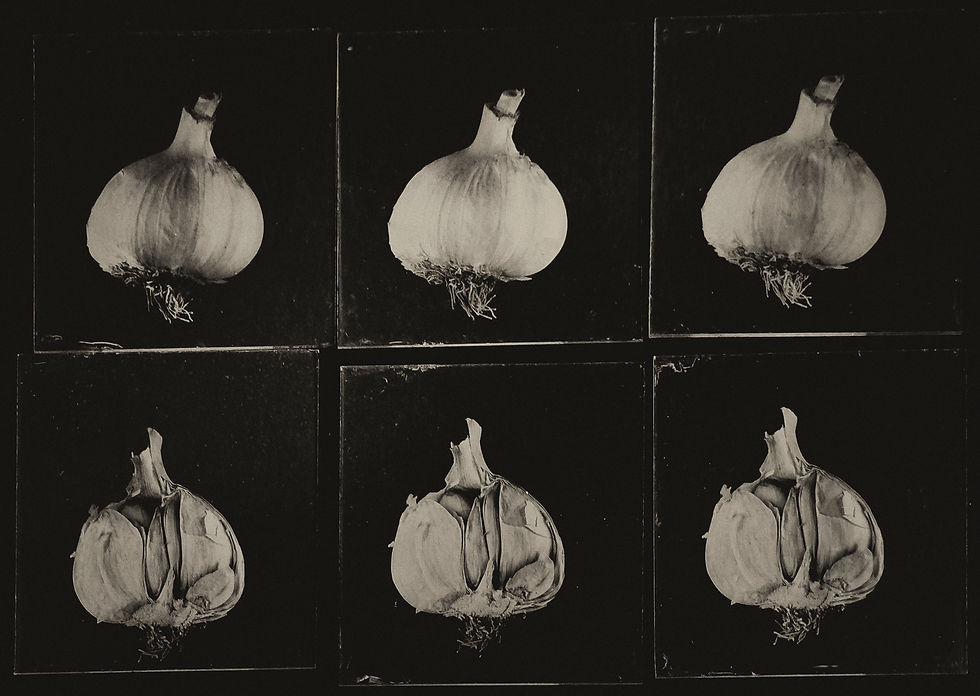Its been a busy start to 2025 exploring the use of the 19th Century Wetplate collodion technique for making photographs. With long exposure times indoors subjects need to be able to sit still - vegetables ( and fruit) cooperate very well! I like to light them in a way that isolates them from any usual context. This does two things; focuses attention more keenly and abstracts the image.

A humble swede becomes a planet with a detailed surface not usually noticed.
The process has been very tricky to refine - yet still produces artefacts that reveal the individual, craft nature of process - more "Arts & Crafts" than the hyper-realism of the sanitised pixel-image. Resonating with the Japanese tradition of wabi-sabi: the beauty of imperfection.

Finished images are backed with blackened glass and sealed from the air with mwtalised tape to prevent oxidation of the silver. It is the silver crystals, suspended in collodion that give these "Ambrotypes" such life and depth - something the digital reproductions shown here lose.






























Comments